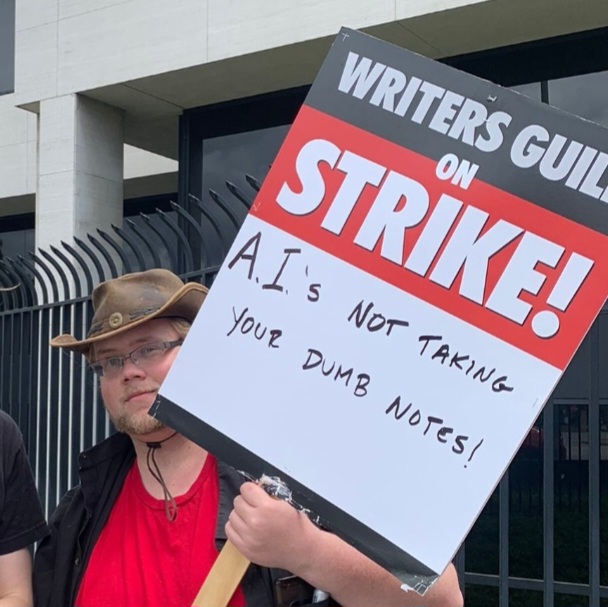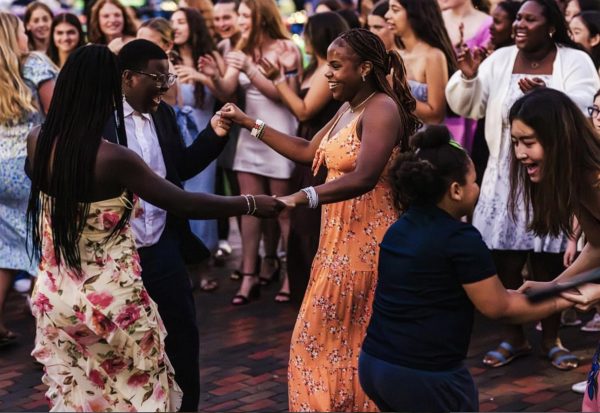Writers’ Strike Nears its First Month
Fans are worried about the outcome of their favorite TV shows as Hollywood screen writers continue a weeks-long strike
On May 2, the Writers Guild of America (WGA), a union representing over 11,000 productions, went on strike to demand higher pay and better contracts, along with a list of other proposals.
Besides Covid, the last time Hollywood shut down was during the last WGA strike, which took place 15 years ago, in 2008.
Actors have stepped into the light to show support as major studios such as Amazon, Netflix, Warner Bros Universal, and others panic.
Several TV shows and movies have suspended production until the strike resolves, including many late night shows.
Other shows that have been suspended are, “Abbott Elementary,” “American Dad,” “Family Guy,” “Andor,” “Blade,” “Cobra Kai,” “Good Omens,” “Jeopardy,” “MTV Movie Awards,” “Stranger Things,” and “Rings of Power,” along with many others.
The writers’ strike will not be a short period of time, according to New York Times.
Chris Keyser, the chair of WGA, interviewed by New York Times said, “They’re going to stay out until something changes because they can’t afford not to.”
According to the New York Times, companies are prepared to outlast a strike of at least 100 days.
There are several proposals from the WGA that have been discussed, such as the use of mini rooms.
Mini rooms are a small group of writers hired by a studio to write several scripts for a series over a short span of two or three months. Writers in such a situation are paid less then a standard writers’ room, thus, undercutting the show’s regular writers.
Mini room writers are then left in the dust, even if the show is pushed forwards through production. Typically a company will only hire a few writers because several plots for the script have already been created.
“Mini rooms are crushing the ability for writers to string together a jobs the way that we used to,” an ABC staff writer told Today.
Members of the Film Cub at Williston recognize the importance of the writers strike.
Luke Richardson, a junior member of the Film Club, said While the strike is sad to see, it is necessary. Writers are incredibly underpaid and work incredibly hard to see very little money. For that matter, most people in Hollywood (outside of big producers) are underpaid.”
The future of film and film production has writers worried with the advancement of AI technology.
“While I think that films are going to have a rough time after seeing the affects of the strike, things will go back to normal eventually,” Luke added. ” I don’t think general audiences are going to see long term affects.”
Orion Minton, senior in Film Club has similar thoughts.
“I think the future of film is similar to what A24 is doing right now, where studios brand themselves and focus on curating a certain kind of film or style of film,” he said. “This could lead to more indie success and less focus on broad appeal.”
Similar to the last strike, writing and the film industry will grow and change.
“I think that it’s great the last strike was a long time ago and media has changed a lot with the growth of streaming,” Orion said. “It’s important that the work force should get a cut of that because it is where the bulk of the profits come from for new shows and movies.”
Despite the controversy, the strike has ignited a fire of inspiration for many interested in the entertainment business.
“I’m proud that the film industry has strong representation for its writers,” Orion said. “As a member of Film Club, I like the fact that the people who write some of the best entertainment have a better chance of being compensated fairly. Overall, I would like to see this level of representation for everyone in the film industry.”













